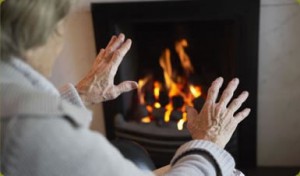A. General winter preparedness
- Guidance on staying healthy this winter is available from the NHS by clicking here.
- If you are receiving health services or social care, ask your GP, key worker or other contact about staying healthy in winter and the services available to you. Make sure you have a list of emergency numbers if you need to call for assistance or advice during cold weather.
- Get a flu jab if you are in a risk group. Anyone in a high risk group should have been contacted by their GP to arrange vaccination. You can check if you may be in a high risk group and what to do by clicking here.
- Give up smoking – this would improve circulation and reduce the risk of heart attack.
- You can check your entitlement to benefits and tax credits by clicking here.
- Find energy grants and help with heating costs by clicking here.
- Check that your heating is working properly. Check room temperatures – especially those rooms where disabled or vulnerable people spend most of their time. If you or someone else is likely to be restricted to one room during the winter period or during a cold spell make sure that it can be kept at or above recommended temperatures and that you plan what resources you / they need to keep them safe and warm.
- Make sure that you have access to sufficient fuel supplies for the winter period, especially if you rely on deliveries of oil or solid fuel. Consider alternative heating measures if required.
- Protect water pipes from freezing by insulating them. Draught-proof around windows or doors. Avoid blocking ventilation points in the home. Fit an audible carbon monoxide alarm that is EN50291 compliant.
- Look out for vulnerable neighbours and help them prepare for winter. Consider other preventive action you can take, perhaps volunteering to help the community.
B. What to do when severe winter weather is forecast
- Monitor the weather forecast. Ensure you are stocked with food and medications in advance.
- Take the weather into account when planning your activity over the following days. Avoid exposing yourself to cold or icy outdoor conditions if you are at a higher risk of cold-related illness or falls.
- Check room temperatures – especially those rooms where disabled or vulnerable people spend most of their time.
- Maintain regular contact with vulnerable people and neighbours you know to be at risk in cold weather.
- Discuss with friends and neighbours about clearing snow and ice from the front of your house and public walkways nearby.
C. Responding to severe winter weather
- Continue to monitor the weather forecast.
- Check and maintain daytime room temperature at 21°C. Check bedroom night-time temperature and maintain it at 18°C or warmer.
- If you have to go out, make sure you dress warmly and wear non-slip shoes. Also tell someone where you are going and let them know when you get back. If you have a mobile phone, keep it charged and on you at all times.
- Dress warmly, eat warm food and take warm drinks regularly.
- Check on those you know are at risk.
- If you are seriously concerned about your own health or that of others, alert the emergency services. If it is not a 999 (life threatening) emergency, you should call the NHS on 111, a free to call number (mobiles and landlines). The 111 service provides initial assessment and directs people to the right local service.
- Clear pavements of ice or snow if you are able to do so safely. Essential guidance is available by clicking here.

